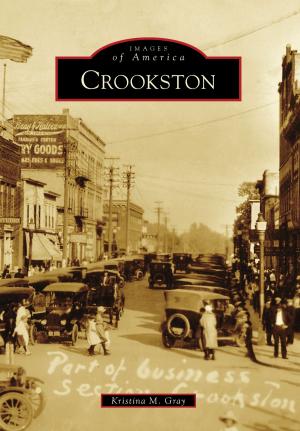| Author: | Lila Hoogeveen, Shiona Putnam | ISBN: | 9781439625880 |
| Publisher: | Arcadia Publishing Inc. | Publication: | August 9, 2010 |
| Imprint: | Arcadia Publishing | Language: | English |
| Author: | Lila Hoogeveen, Shiona Putnam |
| ISBN: | 9781439625880 |
| Publisher: | Arcadia Publishing Inc. |
| Publication: | August 9, 2010 |
| Imprint: | Arcadia Publishing |
| Language: | English |
The history of Atlantic is rooted in the story of unrelenting entrepreneur Franklin H. Whitney. His passion inspired a strong and enterprising breed of men who embraced his vision and settled in the lush hills and valleys of Cass County, Iowa, in the decade following the close of the Civil War. The railroad provided the impetus for rapid growth and prosperity, and Whitney�s vision of a new city became a reality when his recommendation for a depot site was approved. Within six days, Whitney�s agent, Thomas Miller, had built the first house from which Whitney ordered furrows plowed to the railroad grading. Atlantic was thus born. The town grew rapidly, and by 1869 civic and social organizations, churches, newspapers, banks, schools, and businesses were thriving. Atlantic also had its share of shady characters, outlaw gangs, and disasters. The photographs and stories in this book provide a glimpse into the lives of Atlantic�s intrepid developers and the city they established in the valley of the Nishnabotna.
The history of Atlantic is rooted in the story of unrelenting entrepreneur Franklin H. Whitney. His passion inspired a strong and enterprising breed of men who embraced his vision and settled in the lush hills and valleys of Cass County, Iowa, in the decade following the close of the Civil War. The railroad provided the impetus for rapid growth and prosperity, and Whitney�s vision of a new city became a reality when his recommendation for a depot site was approved. Within six days, Whitney�s agent, Thomas Miller, had built the first house from which Whitney ordered furrows plowed to the railroad grading. Atlantic was thus born. The town grew rapidly, and by 1869 civic and social organizations, churches, newspapers, banks, schools, and businesses were thriving. Atlantic also had its share of shady characters, outlaw gangs, and disasters. The photographs and stories in this book provide a glimpse into the lives of Atlantic�s intrepid developers and the city they established in the valley of the Nishnabotna.















